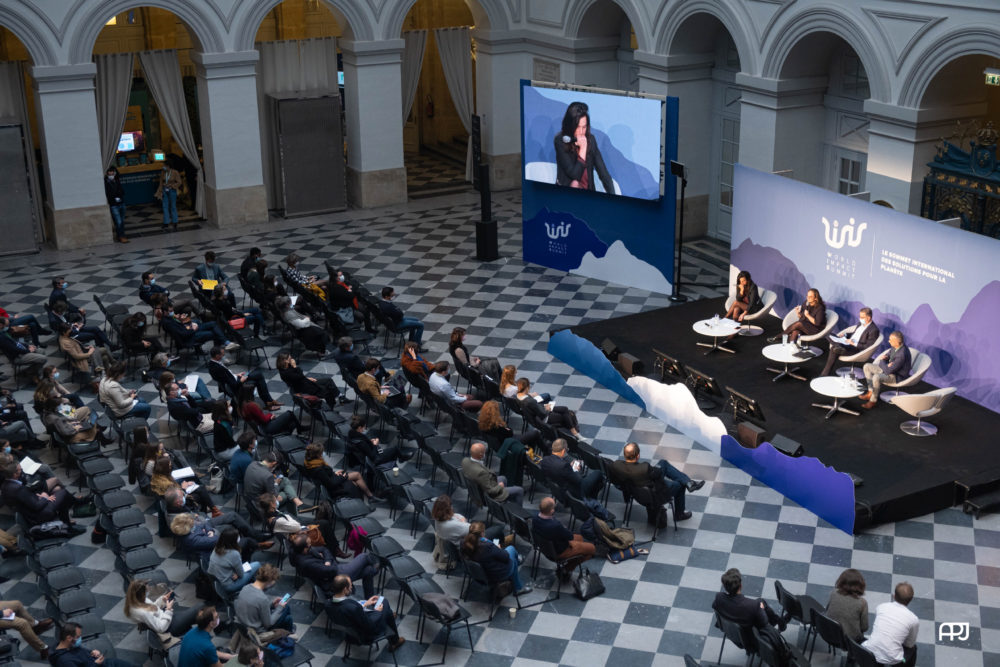Discover the two main topics of our experts for Thursday, December 1st, still around our issue: How to innovate differently?
THURSDAY, DECEMBER 1 – MORNING
Energy, transport and mobility: reducing our carbon impact
The fact is simple: every day, every second, we use energy. To heat us, to move us, to use our household appliances or to communicate… everything is about energy consumption. The priority is to engage a transition in order to improve our energy system and thus reduce its environmental impact. In concrete terms, this means all the transformations of our energy production, distribution and consumption system carried out on a territory in order to make it more ecological. This transition is based on a triptych between :
- Energy sobriety, which aims to reduce energy consumption through changes in behavior, lifestyle and organization
- The development of renewable energies in the face of the depletion of fossil fuels
- And, the optimization of energy efficiency through technological advances.
Accelerating energy sobriety means slowing down CO2 emissions and global warming.
Thus, sustainable mobility is a major lever for changing the climate impact. It is also a partial response to energy sobriety, as it aims to reduce the impact of mobility on the environment. ADEME has created an eco-mobility label that voluntarily commits local authorities to implement actions on the theme of sustainable mobility.
Finally, transportation, whether it be commuting, personal travel, the tourism sector, logistics or the flow of goods, has a real impact on our carbon footprint. With the explosion of e-commerce and more recently the health crisis, the delivery offer (fashion, meals, etc) has never been so important. However, the climate emergency and the adoption of a more responsible consumption mode are pushing individuals to favor more ethical and environmentally friendly alternatives. However, the conversion to carbon-neutral delivery methods has a cost, which is difficult to pass on in the final price.
What innovative solutions can be put in place to gradually replace the use of fossil fuels with a cleaner energy mix? How can we move, exchange and share in a more sustainable way? What can be the axes of improvement for society in terms of energy sobriety and what are the concrete solutions to achieve this? Do we have to choose between reducing or offsetting the carbon impact of our activities?
THURSDAY, DECEMBER 1 – AFTERNOON
Waste management and circular economy: enhancing our resources
In view of the diplomatic and climatic situation and the sharp reduction in natural resources, it is more than necessary for our production and consumption models to undergo a profound transformation. The COVID crisis was a first warning, reminding us that our models are not sustainable in the face of the challenges we face.
To embody this necessary economic transformation, the principles of the circular economy offer interesting avenues to support the transformation of value chains. Despite their apparent complexity, these business models make it possible to increase the resilience of economic agents and territories in the face of future crises (climate, health, diplomatic …) while creating economic value. Through the creation of innovative partnerships and by rethinking our uses, many actors are proving that it is possible to increase the sustainability of our products and limit the need to extract new natural resources.
Also, in response to current environmental challenges, the French government passed the AGEC law in early 2020, which fights against waste, single-use plastic and programmed obsolescence. It promotes reuse and guarantees more transparency for consumers.
Requiring a multi-phased implementation, 2022 marked a new step in this transformation process, involving all actors in the value chain. In order to effectively fight against waste, it is now forbidden to dispose of unsold non-food products including electronics, toys, hygiene products and clothing. The law will be generalized to all products as of December 31, 2023.
How can we manage our resources in a circular way in order to increase the resilience of our territories? How can we reintegrate an economy at the service of the living? How, in practice, is the AGEC law being implemented and what cooperation is emerging in the territories to put this fight against waste into practice? What impact will this law have on production models for industrial actors? And how does it promote reuse and donation to associations?
Find the program of the first day of the event here!
To discover positive impact solutions and enriching speeches, come to the Palais des Congrès on November 30th and December 1st for the 5th edition World Impact Summit !
